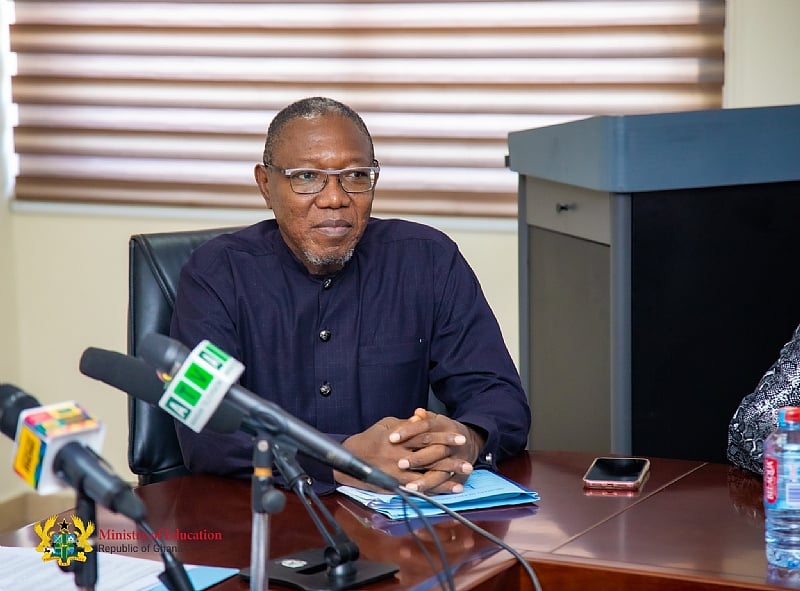The Ghanaian education system faces significant challenges, prompting concerns about declining standards and the need for comprehensive reforms. Dr. Clement Apaak, the Deputy Minister of Education, addressed these concerns at the 5th graduation ceremony of St. Vincent College of Education, acknowledging the detrimental impact of stalled infrastructure projects on teaching and learning in teacher training institutions. He reassured the graduating class and the wider educational community of the government’s commitment to reviving and completing these projects nationwide. This commitment signals a recognition of the crucial role infrastructure plays in creating a conducive learning environment and fostering quality teacher education. The dilapidated state of facilities, including lecture halls, hostels, and staff accommodation, underscores the neglect these institutions have faced, hindering their ability to effectively train future educators. The government’s pledge to address this infrastructure deficit represents a positive step towards improving teacher training and, ultimately, elevating the overall standard of education in Ghana.
The theme of the graduation ceremony, “Addressing the Falling Standards of Education in Ghana: The Role of Colleges of Education,” highlights the widespread anxiety about the decline in educational quality. This decline manifests in various ways, including reported malpractice in national examinations like the West African Senior School Certificate Examination (WASSCE). Such incidents erode public trust in the integrity of the education system and raise serious questions about the effectiveness of current teaching and assessment practices. Dr. Apaak’s remarks underscore the government’s recognition of the urgent need to tackle these issues head-on. The focus on strengthening teacher education through resource allocation to colleges of education signifies a belief that well-trained, qualified, and motivated teachers are key to reversing the downward trend and revitalizing the education sector. This approach emphasizes the foundational role of teachers in shaping the future of the nation and the importance of investing in their professional development.
The Deputy Minister’s address emphasized the government’s prioritization of teacher education as a cornerstone of national development. By providing adequate resources to colleges of education, the government aims to create a pipeline of competent, qualified, and committed teachers who can effectively address the challenges facing the education system. This investment in teacher training is not merely about improving infrastructure; it’s about fostering a culture of excellence within the teaching profession and equipping educators with the skills and knowledge necessary to inspire and empower their students. The emphasis on teacher quality reflects an understanding that teachers are not just dispensers of information but are instrumental in shaping the intellectual, social, and emotional development of young minds. This recognition of the teacher’s pivotal role reinforces the government’s commitment to rebuilding the education system from the ground up, starting with those who directly impact student learning.
Dr. Apaak’s challenge to the graduating class to embrace their profession with passion and responsibility highlights the transformative potential of dedicated educators. He reminded them that their influence extends beyond the confines of the classroom, shaping the future of the nation by molding the next generation of leaders, innovators, and citizens. This call to action underscores the significant societal impact of teachers and the need for them to view their roles not just as jobs but as vocations. By instilling a sense of purpose and dedication in newly qualified teachers, the government hopes to cultivate a generation of educators committed to raising educational standards and inspiring a love of learning in their students. This emphasis on passion and responsibility reflects a belief that effective teaching requires more than just technical proficiency; it demands a genuine commitment to student success and a deep understanding of the transformative power of education.
The challenges facing the Ghanaian education system are multifaceted, stemming from a combination of factors, including poor supervision, limited resources, and low teacher morale. These issues, coupled with concerns about the quality of teacher trainees, necessitate bold and comprehensive reforms. The lack of effective oversight and accountability mechanisms within the system contributes to a culture of complacency and hinders the identification and resolution of critical issues. Insufficient funding and inadequate resources further exacerbate the challenges, limiting the ability of schools and colleges to provide quality education. Low teacher morale, often a result of poor working conditions and inadequate compensation, negatively impacts teacher performance and contributes to a cycle of decline within the education system. Addressing these systemic issues requires a holistic approach that involves not only investing in infrastructure and teacher training but also strengthening supervisory mechanisms, improving resource allocation, and enhancing teacher motivation.
The concerns about the quality of teacher trainees reflect a broader anxiety about the overall state of the education system. While the government’s commitment to improving teacher training institutions is a positive step, it is crucial to address the root causes of the decline in educational standards at all levels. This requires a comprehensive review of curriculum, teaching methodologies, and assessment practices. Furthermore, fostering a culture of continuous professional development for teachers is essential to ensure they remain equipped with the skills and knowledge necessary to effectively educate students in a rapidly evolving world. Addressing the falling standards of education requires a concerted effort from all stakeholders, including government, educators, parents, and students. Only through collaborative action and a commitment to systemic reform can Ghana hope to restore confidence in its education system and equip its citizens with the skills and knowledge necessary to thrive in the 21st century.


